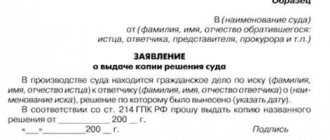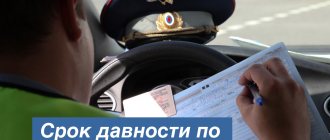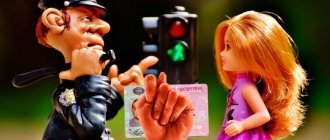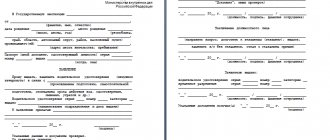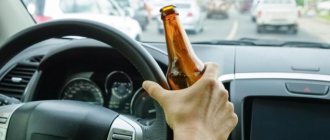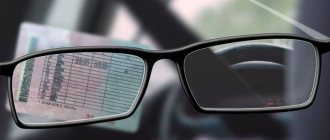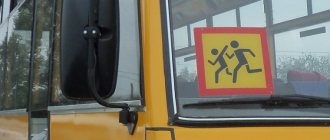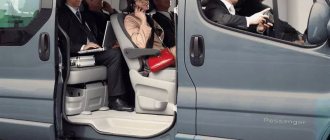Drinking alcohol while the car is turned off or even running is quite common practice for thousands or even hundreds of thousands of our fellow citizens. Someone drinks a bottle of foam secretly from his wife, while someone has a casual conversation with a friend after a hard day at work. After all, according to the law, you shouldn’t be deprived of your license if you drink in a parked car.
Many drivers, who have never driven a car while intoxicated in their lives, do not hide the fact that it is still nice to drink something cool and with a slight temperature in such a cozy and familiar car on a hot day. But traffic police officers do not share this position and regularly try to prosecute drivers who drink alcohol while sitting in their own car and not even intending to go anywhere.
Will you lose your license if you drink in a stationary car?
The answer to this question will only be given by a specific court that is lucky enough to hear your case on the merits. However, the following receive close attention from traffic police officers:
- Drinking alcohol in a running car or a switched off car;
- Drinking alcoholic beverages in a car while sitting in the passenger seats;
- Drinking beer or other drinks while repairing a car, even if the car is physically unable to move.
Moreover, in any of the above cases, judicial practice knows a lot of negative court decisions for drivers - they were simply deprived of their rights without regard to the circumstances.
Most courts seem to take the position that if the driver drinks inside the car, he could drive further under the influence. It’s better to deprive it just in case, you never know!
Every lawyer understands that such a position is complete absurdity, and, moreover, is not based either on the law or on the judicial practice of the highest courts.
It is because of this hodgepodge of judicial positions that no one will tell you for sure whether you can drink alcohol in a stationary car. Deprivation of a license for drinking alcohol in a car that is not running is one of the few categories of cases where it is possible to avoid deprivation of a license! The main thing is to seek help from a lawyer as soon as possible. Call now and check your chances of success. Consultation is free!
- Do you need legal advice or services? Call!
- Moscow and region: +7-499-938-44-67
- Regions throughout Russia: +7-800-3333-762
St. Petersburg and region +7-812-425-64-18
A lawyer will call you back within 10-15 minutes. Seven days a week!
Is it possible to drink alcohol in a stationary car?
Driving while intoxicated, as well as transferring control to a person who is intoxicated, is one of the most serious offenses that a driver can commit. Accordingly, the Code of Administrative Offenses provides for severe punishment for this - a large fine, as well as deprivation of rights for up to 2 years.
It would seem that everything is extremely clear: if you get behind the wheel while drunk, you violated the rules! What if a person got behind the wheel but didn’t go anywhere? This issue is discussed very often. Is it possible to drink alcohol in a parked car? Does the traffic police inspector have the right to equate these actions to driving while intoxicated?
It’s worth saying right away that this is a controversial issue and in most cases the law is not on the driver’s side (when it comes to court, the driver is most often deprived of his license). Therefore, if you have the opportunity to drink in any other place, it is better to take advantage of it, otherwise a harmless bottle of beer can cost you a lot
. If you nevertheless decide to have a drink in a stationary car, and a law enforcement officer suddenly approaches you and demands to show your documents, you need to act as follows.
Firstly, according to the traffic rules, you have the right to demand that he introduce himself and present his official identification. Let the inspector understand that he is dealing with a driver who knows the law. You have every right to rewrite the employee’s details and patrol car number.
Secondly, present only your civil passport
(to confirm your identity)
and a car registration certificate
(to prove that you are sitting in your own car and did not steal someone else's). You do not have to present your license and OSAGO insurance policy, since you do not drive a car.
The inspector has no right to seize
the documents you submitted. If he suddenly refuses to return your passport or vehicle registration certificate, dial 102 from your mobile phone and report this case.
Getting out of the car
(and even more so,
you are not obliged
. If the inspector insists, demand that a protocol on administrative detention be drawn up.
If the inspector does draw up a document sending you for a medical examination, be sure to sign it. Indicate that you did not refuse the procedure, but do not agree with the violation
, since the car was parked and you were not driving it. After drawing up the protocol, you have 10 days to appeal the inspector’s actions.
During your appeal, you must present substantial evidence
that the car was actually motionless (for example, witness statements). In addition, you can record your conversation with a traffic police officer on audio or video, and then also attach this recording to the complaint.
If the case goes to court, most likely the decision will not be made in your favor. In most cases, the evidence provided by the driver is not enough. Perhaps the only indisputable argument that can influence the court's decision
, is a malfunction of the car in which it could not move at the time of the incident.
To summarize, we can say the following: the issue of the legality of drinking alcohol in a stationary car is quite controversial. Even if the driver is 100% innocent, proving this is not always easy. Therefore, if possible, refrain from drinking alcohol in a parked car.
so that there are no problems with the law later.
Can your license be revoked if you sit in an unstarted car and drink beer?
Yes. There are plenty of cases of this kind in practice, and despite the fact that this is clearly illegal, most of these cases end in the deprivation of the rights of the person who drank alcohol in the car.
Why is this happening? Experts identify several reasons:
- Blind confidence of magistrates in the correctness of traffic police inspectors. The phrase “there is no reason not to trust police officers” has become the talk of the town thanks to tens of thousands of unscrupulous drivers who drove while drunk and then tried to evade responsibility. But what about those who are truly innocent, but their testimony is drowned in a stream of cliched court decisions?
- Reluctance to do extra work. In order to “ruin the case,” the judge will have to interview many witnesses, possibly order an examination, justify the inadmissibility of certain evidence, and refute the arguments of the police officers. A lot of cases are decided “according to a template”, deviating from which means wasting a whole day of time, during which 3-4 cases can be considered. It sounds strange, but the human factor has its place.
- There is no presumption of correctness of the evidence of the person involved. Any argument, even a multi-hour audio recording from the moment the first bottle is opened until the arrival of the traffic police, is considered an “attempt to evade responsibility.” The traffic police officer is always right, the person involved is always lying - this is how justices of the peace make the vast majority of decisions. Although no, not the overwhelming majority - the absolute majority of 99%.
At the same time, the opinion of any lawyer is obvious - deprivation of rights for drinking beer or other alcohol in a stationary car is illegal. There are no rules prohibiting drinking in a vehicle. Driving a vehicle is not considered driving that vehicle.
This is exactly what one should proceed from when protecting one’s rights, but arguments against the opinion of the traffic police are rarely accepted by the court.
Is it possible to drink beer in a parked car? Lawyer's answer
The law does not prohibit drinking alcohol in a car, either for the passenger or the driver. The law prohibits DRIVING a vehicle while intoxicated.
At the same time, the term “control” will still cause a lot of controversy, since according to the rules of the Road Traffic Regulations, control is considered to be the movement and movement of the car.
Against this background, even a lawyer is unable to give an ironclad answer about whether it is possible to drink beer in a parked car. But we can advise you to adhere to the following rules and algorithm of actions if you decide to drink in your car or become the object of attention of the traffic police at this moment.
Legal issues
According to current traffic rules, your license can be revoked only for driving a car while intoxicated. In this case, a driver is a person who drives a car, but does not just sit in a car with the engine turned off. Formally, the inspector does not have the right to deprive a driver’s license for drinking alcohol in the car.
The only thing that the inspector is allowed to do in such a case is to check the documents, which will make it possible to establish whether the person sitting in the car is a thief. Therefore, if you are caught drinking alcoholic beverages in a car, you will be required to present the vehicle’s registration certificate and your identity documents to the traffic police inspector. However, it is not necessary to provide a license or compulsory motor liability insurance during such an inspection.
If an inspector offers to go into his car to draw up a report, or detains the driver, planning to take him to a mobile service for examination for the presence of alcohol in his blood, then the employee should, first of all, be required to state the reason for his actions. According to the law, administrative detention can be issued only if there are compelling reasons. If a traffic police inspector tries to use force or threatens to force you to get into an official car, then you should immediately dial service 102 and thereby stop the inspector’s illegal demands.
Any requirement of a traffic police inspector to drive with them to a driver who has been drinking alcohol in a stationary car is illegal. Even if the traffic cop has drawn up a protocol, you can sign it and in the appropriate section write your disagreement with the violation, indicate that the car was parked and you were not driving the car. It should also be noted that the protocol was drawn up without video recording and without the involvement of witnesses. Subsequently, the driver has 10 days to send a complaint to the prosecutor's office about such unlawful actions.
The task of the car owner who finds himself in such an unpleasant situation will be to create as many difficulties as possible for the inspector, including demanding that he explain the reason for drawing up the protocol, sign all his comments, if possible, call witnesses and turn on the video recording on the recorder. But even in such a case, you cannot be completely sure that such a case in court or when considered by the traffic police will be decided in favor of the car owner.
What should you do if you lose your license for drinking in a parked car?
So, a typical situation: you are drinking alcohol with your car turned off or on, or even repairing it with a bottle of beer, when a traffic police crew approaches you.
Well, then everything is like in a sad movie: Your documents! Are we drinking? Are we managing? Let's pass.
First of all, ask the employee for his badge number, and at the same time demand to show his identification. Remember or write down all the information from there, as well as the number of his company car. If they want to revoke your license for drinking in a parked car, this information will obviously be useful to you.
Let's start with the documents
IDPS is asked to show documents. What to do? Refusing and disowning everything is not an option; formally, traffic police have the right to ask for documents for the car that confirm your right to use it. In addition, if you refuse to provide documents, you may be charged with disobedience to police officers.
You can:
- provide the traffic police officer with a vehicle registration certificate and your passport.
- if the car is not registered in your name - a power of attorney.
- if there is no power of attorney, you will have to call the owner - otherwise you will not be able to prove the legality of your stay in the car.
Such demands are legal and logical - what if you are a car thief, the traffic police will say, and their suspicion is completely justified.
What not to do:
- Do not hand over your driver’s license - after all, you are not driving a car, which you can directly and clearly state to the police;
- Do not show your MTPL policy for the same reasons.
But let's return to the issue of drinking alcohol in a parked car.
So, the driver’s actions should be as follows
- You should ask the traffic police inspector to present his service ID to verify which service the police officer belongs to;
- If you remember poorly, then you should record the details of the employee who approached you by writing in a notebook or taking a photo using a mobile phone or smartphone. This is necessary in order to reliably know who you are dealing with, and in case of an unfavorable development of events, to know who is guilty of violating your rights;
- In the event that a police officer ignores your demands to introduce himself, you can safely call a police squad using the short telephone number 02 or 112. It does not matter that you may be intoxicated, if you are confident that you are right, then it is better prevent the development of excess in advance;
- If you have a video recorder in your car, then it is advisable to record all communications with the inspector. Or use a smartphone. This will allow you to defend your case and prove your innocence of the charged offense. The inspector should not be aware that filming is taking place;
- If you are required to provide documents, you can present a civil passport, which certifies the identity of a citizen of the Russian Federation on the territory of your country, as well as a registration document for the vehicle. Under no circumstances should you take out your driver’s license or show that you even have it with you. After all, you are not driving a car, therefore, you are not required to present a driver’s license. A citizen inside a car is not a driver, since he is not driving the vehicle. And the car registration certificate confirms that it is yours, and you are legally in the vehicle;
- If a traffic police inspector confiscates any of the documents you presented, you should immediately notify the police by phone.
More on InDrive.Net:
Traffic police scam - practice: leapfrog with signs
Video recording is our best friend
As already written above, the court usually has no reason not to trust the police officers, so if you find yourself alone against two representatives of the traffic police, you will obviously lose. If you suddenly drank alcohol alone or your friend suddenly disappeared, record everything on video.
A video recording of the conversation comes to the rescue.
- The best thing is to turn your standard DVR towards the police officer.
- If there is no recorder, use your smartphone, or even a camera with a video recording function!
No one guarantees that your video will be included as evidence, but it can be “uploaded” to the world by posting it on social networks and attract public attention if suddenly any abuses are committed by a traffic police officer.
If there is someone else in the car besides you, they can also keep their own record. Just in case, otherwise your copy will be lost.
And most importantly: Do not erase or move the recording from the media under any circumstances! When you insist on including the video as evidence, it is possible that you will be accused of editing it. If it comes to examination, then experts will evaluate only the material from the original media! If the video was copied or “cropped” (to remove, for example, your swearing when you saw police officers outside the car window), then there is no hope of recognizing it as reliable.
This may sound strange, but if you are going to drink beer in a parked car, then to avoid having your license revoked, turn on the video recording. Right up to turning the recorder camera into the cabin, which will record everything - from the opening of the first bottle to the traffic police officer approaching the window. Some may find this funny, but such a video is the only obvious chance to achieve an acquittal, at least on appeal. If you are very embarrassed about yourself and your drunken conversations with a friend, turn off the sound recording. It would be enough. But don’t forget to turn it on when you start communicating with traffic police!
Drink driving claims
In this case, the best defense will be an attack. In a legal and correct sense, of course. Make the inspector upset three times because he decided to “quickly” draw up a report on a lone drunkard sitting in a car.
What can be done from a legal point of view?
- Demand that a protocol of your arrest be drawn up (without it you may not even get into the IDPS car);
- On all documents that relate to driving a vehicle while drunk (protocol of suspension; protocol of detention of a vehicle), clearly and clearly write that you do not agree with the violation, the car was not driven, it was standing still, there is a video. Follow the strokes of empty spaces in documents to avoid adding fictitious facts.
- If a detention report is nevertheless drawn up, pay attention to the absence of witnesses. If witnesses were included, but you did not see them, make a corresponding note on the protocol.
- When you are sent for a medical examination (and there will be one!), write in the protocol that you do not agree, did not control, etc. - all the same as mentioned above.
- If you are still put in the car, demand a video recording or, again, the involvement of two witnesses.
If you refuse to be examined, you will be deprived of your rights under another article. But in court, in any case, you will have to prove that you were not driving the vehicle. According to the law, however, position employees must prove this, but we, as you remember, “... have no reason to doubt the veracity of their testimony...”. Therefore, you will have to prove that you are right.
How else can you help yourself if your license is revoked for drinking beer in a parked car?
- If you are alone, invite your friends, or better yet, a good lawyer or at least an experienced lawyer from among your acquaintances;
- Assign everyone to video and audio recording. The more sources there are, the less chance you have of being accused of falsifying evidence;
- Consult with lawyers by phone - ask your lawyer a question or contact our specialists. They will tell you how to follow every action of the traffic police inspector when preparing documents.
- If you experience aggression or threats from a traffic police officer, lock yourself in the car, turn on the video and call the police hotline or 112. Also ask one of your friends to drive up.
- Under no circumstances should you be rude to the police or show hostility. A careless word can significantly add to your problems, because they are still being executed.
What to do in court?
At the court hearing, be sure to ensure your attendance and defend your position. Make sure you hire an experienced attorney or lawyer who knows the process thoroughly and can help you defend yourself.
Key arguments:
- The car did not move, you did not control it;
- This can be confirmed by witnesses, neighbors, friends, etc.
- Request a video recording from the traffic police crew recorder, where details may be visible;
- Include your video and the videos of your friends;
- Insist on an examination if the court suddenly sees a sign of editing in the video (alas, the examination costs money);
- Focus on the lack of evidence of your control of the car, which is an irremovable doubt in your favor.
If the magistrate does not heed your arguments, appeal the decision to the appeal (district or city court), and then to the supervisory authority - to the regional court.
The Supreme Court of Russia allowed drivers to drink in cars with the engine running?
Alas, despite the widespread news in this context, the Supreme Court did not make such decisions. But there was Resolution No. 45-AD15-8 of November 27, 2015, in which a person who was drinking in a faulty car was restored to all rights, since the magistrate did not exclude irreducible doubts, which are interpreted in favor of the accused. In particular, the following were used as evidence:
- Information about the vehicle's mileage from the GLONASS system;
- Certificates from a car service, in which the car components were under repair;
- Certificates from the organization to which the car was assigned (it was official).
Based on the listed body of evidence, the driver who was actually deprived of his license was acquitted, and the case was dismissed due to the lack of proof of the offense. Formally, the Supreme Court of the Russian Federation gave an answer about whether it is possible to drink alcohol in a stationary car - yes, it is possible. No control. But in this case there could be no control due to a technical malfunction.
The best way to clarify the position of the Supreme Court is to still reach it with a corresponding complaint in your case. Who knows, what if you create a precedent? Our lawyers can help you with drawing up all the necessary documents!
However, not everyone is lucky in this regard - with the engine running, there are very, very many chances to lose your rights, but defending your rights in a bunch of instances is long, troublesome and expensive.
I sat and didn’t go
In January of this year, the judicial authorities recorded an interesting court decision. The Supreme Court took into account the appeal of a motorist fined for drinking alcohol and overturned the punishment previously imposed on her by the traffic police.
According to the case materials, on February 11, 2021, a traffic police inspector found three women drinking alcohol in a car parked in the yard. However, when drawing up the protocol, he wrote that the owner was driving in the car and was stopped. The owner of the car was deprived of her license for a year and eight months, and was also fined 30 thousand rubles. Despite the “slip of the tongue” and active objections from witnesses, two courts supported the traffic police and upheld this decision. However, the Supreme Court acted differently. He took into account the testimony of witnesses and found out that the traffic police officer still did not stop the car, but approached an already parked car. All doubts were interpreted in favor of the defendant and her punishment was removed. However, this decision left more questions than it answered. So is it now possible to drink from a bottle in your car?
Question answer
Is it possible to drive after eating candy with alcohol?
I was sitting in the car drinking beer. Deprived of rights. Arbitrage practice
Judicial practice on accusing drivers of drinking alcohol in a parked car is almost clear - almost everyone is deprived of their license.
They are deprived for the following:
- The driver was sitting behind the wheel with the car turned off or on and drinking;
- The driver drank alcohol even in the passenger seat;
- Everyone drank in the car, but they deprive the driver - the owner of the car or sitting in the driver's seat.
It is almost impossible to challenge the arguments of police officers - the judges deprive everyone. Little is known about cases of termination of proceedings in cases of this kind; even with a very strong desire, you will not find them on the Internet.
And in the current situation, it’s really easier not to drink in the car than to seek justice later.

